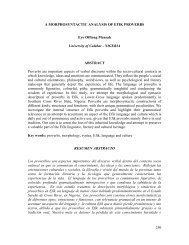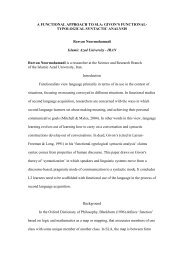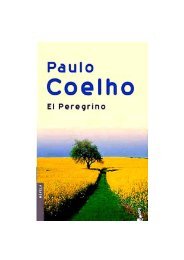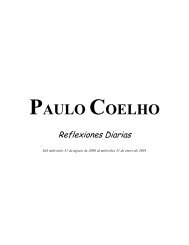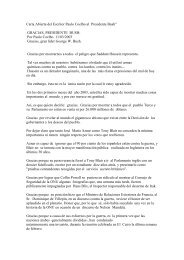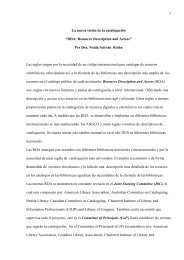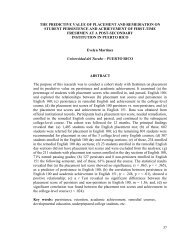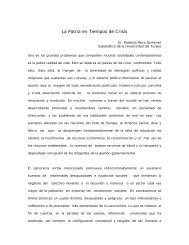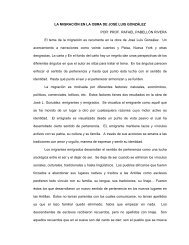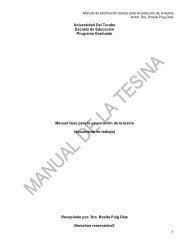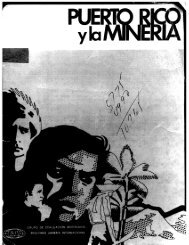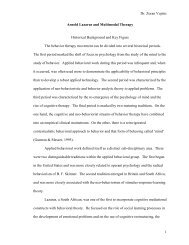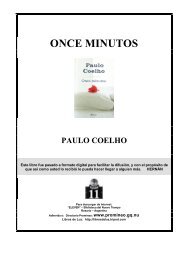Jennet Rodriguez Betancourt
Jennet Rodriguez Betancourt
Jennet Rodriguez Betancourt
You also want an ePaper? Increase the reach of your titles
YUMPU automatically turns print PDFs into web optimized ePapers that Google loves.
ehind varied discursive masks. So this time the determined writer focused on the spirit<br />
and way of life of the inoffensive, modest inhabitants of the mountains.<br />
According to Brau, El Gibaro was already categorized as “libro sospechoso”; and<br />
therefore, it would be detained and carefully examined at the port. It was Alonso’s<br />
connection with San Juan’s bishop, Gil Esteve, which redeemed the book of its sins and<br />
helped it enter the island with the church’s blessings of the Catholic Church. Lopez<br />
Adorno states that the literary production of Puerto Rican writers continuously<br />
confronted political, institutional, and ideological obstacles that did not permit it to attain<br />
a larger readership nationally and abroad (Making the decolonized visible 7). Flemming<br />
Brahms affirms that “As a group the Commonwealth nations, however different they may<br />
be, share the experience of colonialism and its subsequent developments. Their histories<br />
vary, but they always need to be understood in terms of a dependence upon the imperial<br />
centre and a later movement towards independence” (66). Brahms further agrees that<br />
these countries exhibit a sense of urgency and an enthusiasm to re-create both their social<br />
and cultural self-hood and many times an obsession with cultural identity is observed.<br />
(66)<br />
The jibaros, one of Alonso’s main themes, were the deprived people from the<br />
countryside or mountains. A jíbaro or gíbaro is an expression meaning hill or forest<br />
people, commonly used to refer to mountain dwelling peasants in Puerto Rico. Francisco<br />
A. Scarano relates in “The Jibaro Masquerade and the Subaltern Politics of Creole<br />
Identity Formation in Puerto Rico, 1745-1823” that the jíbaro initially appeared in<br />
writings during the Spanish colonial period in which elite writers hid their political ideas<br />
behind discursive disguises using the uneducated, inoffensive peasants who lived in the<br />
6



